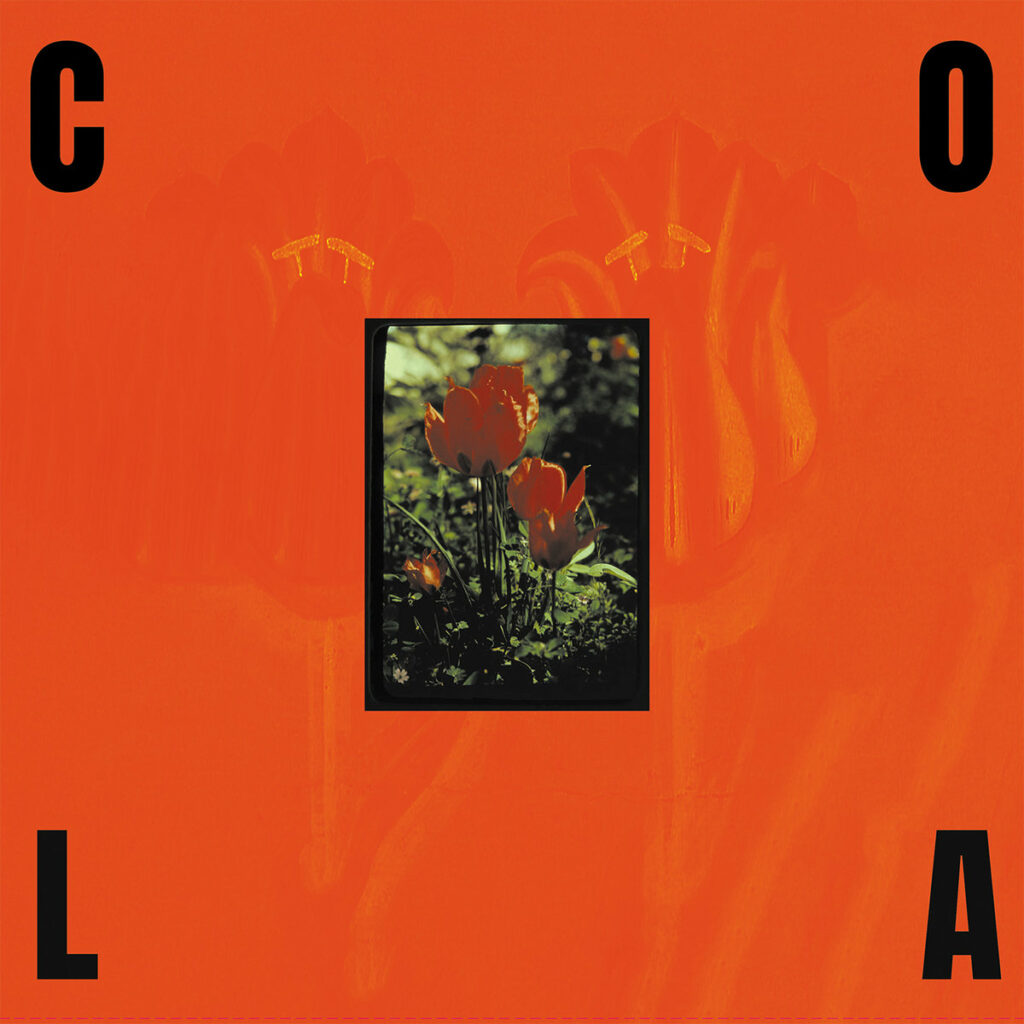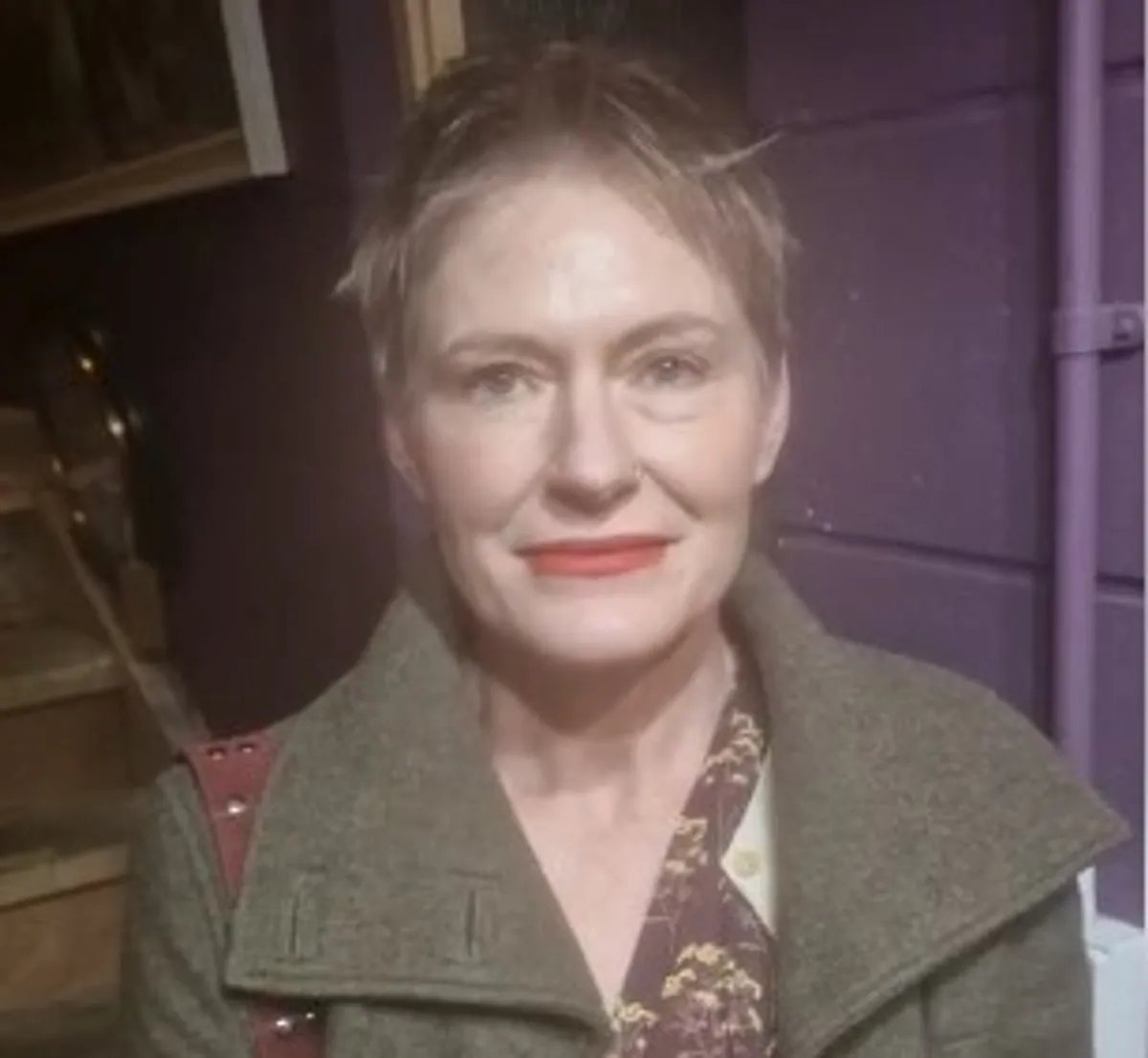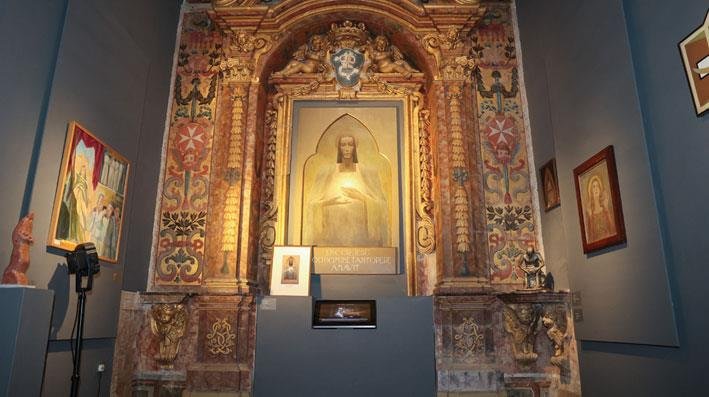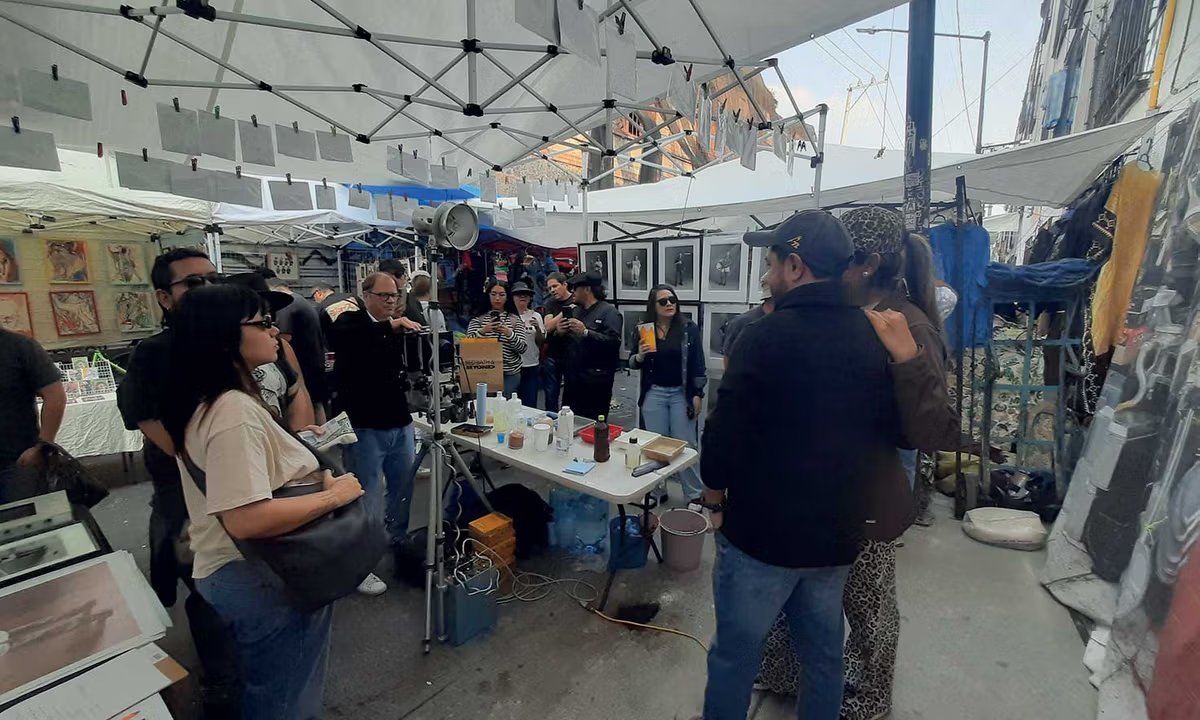Posted: by The Editor

Montreal trio Cola perfects and pushes outside the confines of their minimalist pallet on The Gloss, the follow up to 2022’s breakout album Deep In View. Brushed drums and free flowing vocals demonstrate their ability to innovate within post-punk while staying true to its wiry roots. I caught up with them to discuss progress after Deep in View, books and movies that inspired the album, and the glory days of Montreal’s DIY scene.
What’s your musical upbringing and how did you meet?
EVAN CARTWRIGHT: I started playing drums in sixth grade. I lived across the street from my school, so my friends would come over to write songs during lunch.
TIM DARCY: I played in bands in high school. I had a zine too, so I interviewed bands and reviewed records. I partially chose to go to McGill in Montreal because of their music scene., which is where I met Ben. We were both playing in various projects. After I graduated, we were in a band called Ought. On that journey, we met Evan and started playing with him after Ought broke up.
BEN STIDWORTHY: When I was six, my mom bought me a cheap acoustic guitar. My mom’s friend who played guitar visited from Belfast and taught me the riff to “Summer Nights” from Grease. That completely inspired me to go for it. I taught myself guitar tabs and played with kids throughout elementary, middle, and high school. I was never in a serious band until Ought with Tim. I played music for fun but wasn’t interested in performing. I moved to Montreal for the reason Tim described–wanting a good education, but also wanting to be around a thriving music scene.
Did you overlap in Montreal with Grimes in her crack den days?
TD: I actually did sound for her at the McGill student bar, Gerts. She had a violin and played two songs before leaving the stage. I saw her a month later headlining at the Rialto on a big showcase for Arbutus Records. There was a big and exciting upswell while we were in university, which was amazing for me as a young music fan. I went to lots of shows at Friendship Cove and La Brique, which were semi-legal loft spaces. It felt like a golden age because these accessible venues hosted all kinds of shows. The Plant had sleepover drone shows where people would drone for 24 hours. Young people had so many spaces that became venues.
Your lead single “Bitter Melon” mentions “studying the gloss.” What does The Gloss mean to you and why was it significant enough to be your album title?
TD: The song evokes writing in the margins of a book–the glosses. It’s such a multivalent term, so we got really excited when Evan suggested it as the title. Gloss can be a commentary or critique, but it also evokes the superficial sheen of a magazine. It struck us as a great name for the record.
How do you think The Gloss differs from Deep in View?
TD: One of the biggest structural differences is Evan was a full songwriting member of the band, so his sensibility as a songwriter–shoutout to Evan’s solo record bit by bit–shines through on this album. Deep in View is somber. The Gloss has a lighter touch. Lyrically, it’s narrative-based and has poetic license. Things are intentionally freewheeling and obfuscated.
BS: It felt like a new flavor when Evan came to the table with demos. He said he was trying to write songs he thought I’d write. But then I’d think to myself, “I’d never think to write something like that.” We were interested in different tunings and we did that less this time. “Blank Curtain,” for example, has such an open sound. These compositions feel more taut.
EC: The Gloss is a lot shimmier, especially in terms of the guitar chords and sonorities.
BS: The bass drones more and there’s more repetition, which is something I wanted to try out. I was trying to do stuff I had picked up from folk melodies.
The Gloss is open and free-flowing without reinventing the wheel. Was that a conscious decision or did you gain that comfort over time?
EC: We had relaxed more into what we’re capable of. A band’s first record is always going to be an experiment. You bring things to the table without knowing what the band sounds like yet. Once you play the material, tour, and record, you realize what the band actually sounds like. LP2 is always more relaxed because you know what you’re writing for.
BS: I don’t think it was conscious. Our ethos is to just go for it.
TD: It’s hard to imagine having a creative conversation about our energetic tone. I agree with Evan, part of it is where we’re at emotionally and energetically, rather than wanting to experiment with something specific. Like Ben said, there’s more clarity on this record. It feels very intentional.
You relied on voice memos to record Deep in View during the pandemic. Assuming you were able to work in person on The Gloss, how did that help and hinder your writing process?
BS: It didn’t really change. We wrote Deep in View over a longer period of time, but we stuck to the same processes of sending demos, getting together, and seeing what worked and what didn’t. We wrote The Gloss the same way we wrote Deep in View, but condensed between tours.
EC: We weren’t able to meet regularly because we were on the move, but it was the same process of convening once a month for around four days and working through demos.
TD: The biggest difference is we were on tour throughout a lot of the writing process. We played early versions of some new songs at our shows, so they felt more ready once we got to the studio.
What song challenged you the most?
TD: “Pallor Tricks” has three distinct sections. I had a hard time making it cohesive while leaning into those three sound worlds.
BS: On “Nice Try,” Evan told us to just trust him and keep playing it. Tim and I weren’t so sure.
TD: I loved it, but I thought it belonged on a different record. The lead guitar Evan wrote is so essential on that track.
EC: I had to get you both to trust me on that. I was very stressed when I showed up to track that guitar part because I knew if you guys didn’t like it, the song was not making the record.
BS: Tim didn’t like “Pulling Quotes” at first, but Evan and I were very persistent. If he couldn’t write lyrics to it, that would kill the song.
TD: I procrastinated working on a vocal part, I didn’t see the vision. It pushed me outside my comfort zone. There’s so much space in that song.
What do you want listeners to take away from this record?
TD: Last time we were asked this, I had a very smarmy answer–I hope one person listens to it smoking a cigar, one person listens to it while skateboarding, and one person listens to it skydiving.
EC: I hope people hear something they’ve never heard before in it. That’s maybe the only reason I listen to music is to discover soundsI didn’t even know were possible or lyrics about images that I never would’ve heard.
BS: I like putting on headphones, walking somewhere, and feeling motivated to write. Music is so good at getting people to act or stand up for something. I hope someone has a reaction like that. I don’t want to release music that doesn’t make me feel that way. I hope other people will share that feeling of excitement.
What did you watch, read, and listen to while writing The Gloss?
BS: I read War and Peace, Master Margarita, some Russian history books, Kitchen Confidential (RIP Anthony Bourdain, a true legend), and Shuggie Bain. Tim and Amy gave me Among the Thugs, which is about a guy hanging out with ultras in Europe.
EC: I read Maggie Nelson’s On Freedom aloud with my girlfriend. We had some amazing discussions. I became obsessed with a recording of Gregorian chants from Benedictine monks from the Abbey of St. Maurice and St. Maurus of Clervaux. The organ is way off in the distance and it’s all really spectacular. Very simple, yet so rich.
TD: Dreams by Gábor Szabó and Jeff Parker’s solo record made me excited about playing guitar. I work at a record store and I listen to a lot of jazz at work, but I don’t have a jazz background. Jeff Parker’s music is an entry point that feels very creative and accessible. I read a lot of John Ashbery and Bob Hicok’s This Clumsy Living, as well as Bianca Stone’s poetry book What Is Otherwise Infinite.
Describe a random celebrity encounter you’ve had.
EC: Not sure if he’s a celebrity, but he’s a celebrity to me. Ambrose Akinmusire is an amazing trumpet player. My friend Tara Kannangara is a trumpet player in Toronto and she had a lesson with him. She took him to a gig I was playing. I chatted him up after the show with a looseness I didn’t think I’d have talking to a virtuoso trumpet player.
BS: I was asked to take a photo of Thor from Swans, Caribou, and Damien from Fucked Up at a festival we played in Toulouse.
TD: can’t remember which European festival it was, but I was at the buffet. I looked over and like Annie Clark, St. Vincent, standing directly next to me. Normally I’m not the type of person to approach a celebrity, but she was literally four inches away from me. We made eye contact and I told her I’m a huge fan. She was really sweet, but she probably thought, “I don’t want to fucking talk to you while I get my lentils.”
The Gloss is out now.
—
Gillian Karon | @lethalrejection
The Alternative is ad-free and 100% supported by our readers. If you’d like to help us produce more content and promote more great new music, please consider donating to our Patreon page, which also allows you to receive sweet perks like free albums and The Alternative merch.






